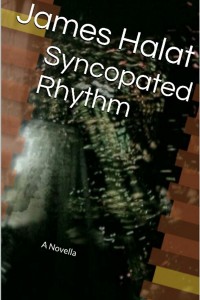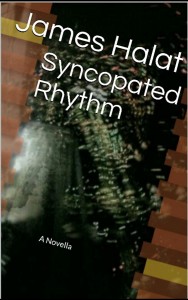My father terraces the small yard behind our house in New Jersey. I see him from my bedroom window setting rocks into the wall for the second terrace. I hurry and get dressed.
I pick up his work gloves from the ground. They come up past my elbows. I try to lift a rock from the wheelbarrow, but it is too heavy. “Here, give me that. You’re going to crush your fingers doing that. You never listen to me.” My father says this in a kind but short tempered way. He turns and places the rock in the wall.
I pull off the gloves and throw them on the ground. I climb up to the second terrace, where the weeping willow stands. He is a tall tree. At night he throws shadows around my bedroom. Sometimes they lull me to sleep. Other times they send me diving under the covers. In the summertime, he sighs in the night wind under the moonlight.
My father continues to build the wall, alone. I stand under the tree. I brush my fingers against his bark. He feels rough. His branches fall like water around me. I touch one. My mother yells from the kitchen window, “Leave that tree alone, you’re going to break your neck.” My father looks up and shakes his head, “He never listens.”
***
I play in front of the house with my friends. We play dodge ball against the garage door. I throw the ball and it lands behind the trellis of the rose bush next to the garage. I go to retrieve it. I step behind the trellis and become caught on some thorns. I can’t move. I call out to my friends, but no words leave my mouth. I try again to move, but I can’t. The air becomes like syrup. I find it difficult to breathe. I start falling slowly to the ground. My friends continue to play together, laughing, and calling out and arguing about rules. They have forgotten about me. I awaken underneath the bed. My face is pressed against the cold hardwood floor.
I tell my mother I have the dream again. She tells me to go out front and step behind the bush. “If you’re afraid of things running around inside your head when you’re sleeping, then prepare yourself for a long, unhappy life. And if your friends ever do that to you in real life, you better find yourself some new friends. You don’t take that kind of shit from anybody, you hear me?”
“How come you take shit from dad?”
“What goes on between me and your father is none of your goddamn business. But to tell you the truth he’s a worrier. Try not to become a worrier like him. If you do, you may as well just dig a hole in the ground, get in it, and pull the dirt over yourself.”
“What’s pissing money up the wall, anyway?”
“Look around the living room. We have lawn furniture instead of a sofa and chair like everybody else. What the hell money is he talking about?”
I shrug my shoulders. My mother works in the basement, sewing, and she cooks and she cleans and she makes trips to school and clothes for us and saves enough money to make Christmas nice for us.
***
We travel to Pennsylvania, where my father’s brother lives with my aunt and cousins. We pack up the car and we go. My father drives exactly the speed limit.
“Geez, look at the traffic. We’ll be stuck here for an hour. Louise, do you think the temperature gauge is too close to hot?”
“It’s fine, Al. And please stop tailgating.”
“Look, the gas is already at 3/4. We’ll have to stop soon. We don’t want to run out on those country roads. Not with the bears and other animals.”
“Stop it, Al. You’ll scare the kids.”
“I feel a little shimmy in the wheel. Can you feel it, Louise? I should have never let you talk me into buying this Ford. We should have stayed with a Plymouth.”
“We couldn’t afford the Plymouth. Not on what we make.”
“I don’t know where all our money goes. I spend half my days in that grocery store and we have nothing to show for it.”
“Oh look, kids, we’re almost at the bridge that crosses into Pennsylvania.”
We are on a winding two way road cut into the mountain along the edge of the Delaware River. We pass a sign that says FALLING ROCK AREA. The mountain is steep. A fence at the bottom catches the large boulders and rocks that roll down. I guess some of them get past the fence. That is why the sign is there. I keep my eye on the road until we cross the river and are in Pennsylvania.
We drive for a long time in Pennsylvania. Finally, we come to the little stone bridge that carries us over the creek and onto the narrow mountain road. The woods are thick here. Sometimes the trees form a canopy over the road, and it feels like riding through a tunnel. At the end of the winding road is a small green house, my aunt and uncle’s house.
It takes me awhile to acclimate to the smell of dairy farms and manured fields. And to telephones with party lines. And to the damp stink of the house in the middle of nowhere, standing alongside the creek.
I spend my first few days on my own. I can’t deal with the changes so easily. I hang around the adults. The adults play cards at the kitchen table. They ask me why I don’t play with the other kids. I don’t answer. I stand off to the side and I watch the flies in the kitchen. They buzz around the fly paper that hangs from the ceiling. Every so often one of them lands on the paper and gets stuck. Buzzing turns to a short-lived moan. Then silence.
After a few days, I loosen up, and I start to play with my cousins. The one my age talks a lot and takes off her clothes outside. She wants me to take off my clothes, too, but I run away every time she asks.
My cousins have friends who live on a dairy farm. Their friends talk about doing things to their dogs and to the farm animals. And they talk about tricks they play on each other in the barn. Everyone goes into the barn. I stay on the porch and pet the dogs.
My father and my uncle get into a fight during a card game. They walk through the house and they yell and they slam doors. I don’t know what they fight about. My mother and my aunt stay at the table. They laugh at the men. They ask me why I’m not down at the creek with the others. I don’t answer them. I watch a spider spin a web near the ceiling. Close to the fly paper.
Then it ends. It is time to leave.
Syncopated Rhythm Description:
“The language is so appropriately raw when needed and so fragile in other passages…James’ gifts as a writer are extraordinary.” – Amazon Hall of Fame Top 100 Reviewer
“I don’t count the days. There are too many of them.”
Our narrator, who remains unnamed, grows up gay in the 1960s and 1970s. He spends most of his time alone as a child, not interested in school or church or playing with the other children. A harrowing move from New Jersey to a jerkwater town in Pennsylvania only serves to drive him deeper into isolation. There a rare local murder, a deadly motorcycle crash, and a doomed crush on a boy in high school mark his time in the sleepy town.
He begins to adapt to his solitary life of empty relationships and pointless jobs by reaching out to the contemporary art world and making ephemeral connections he does not fully grasp, but is convinced will link him to a better world.
“The fact that each work is a painting is not what makes it interesting. What makes it interesting is that each painting elicits its own breath.”
After an unexpected job transfer, he finds himself living in the middle of Tokyo, alone, illiterate, and utterly stunned by his new surroundings. There he wanders into a local bar where he meets a disarmingly attractive young bartender he calls My Foolish Thing. My Foolish Thing pours him drinks and draws pictures on napkins in a genuine effort to get to know him. He replies with an impassioned attempt to complete the connection, but it isn’t clear to him what, if anything, will happen.
Syncopated Rhythm is an honest and sobering account of living in a world meant for other people, and the truly heroic hopes that make that possible.




